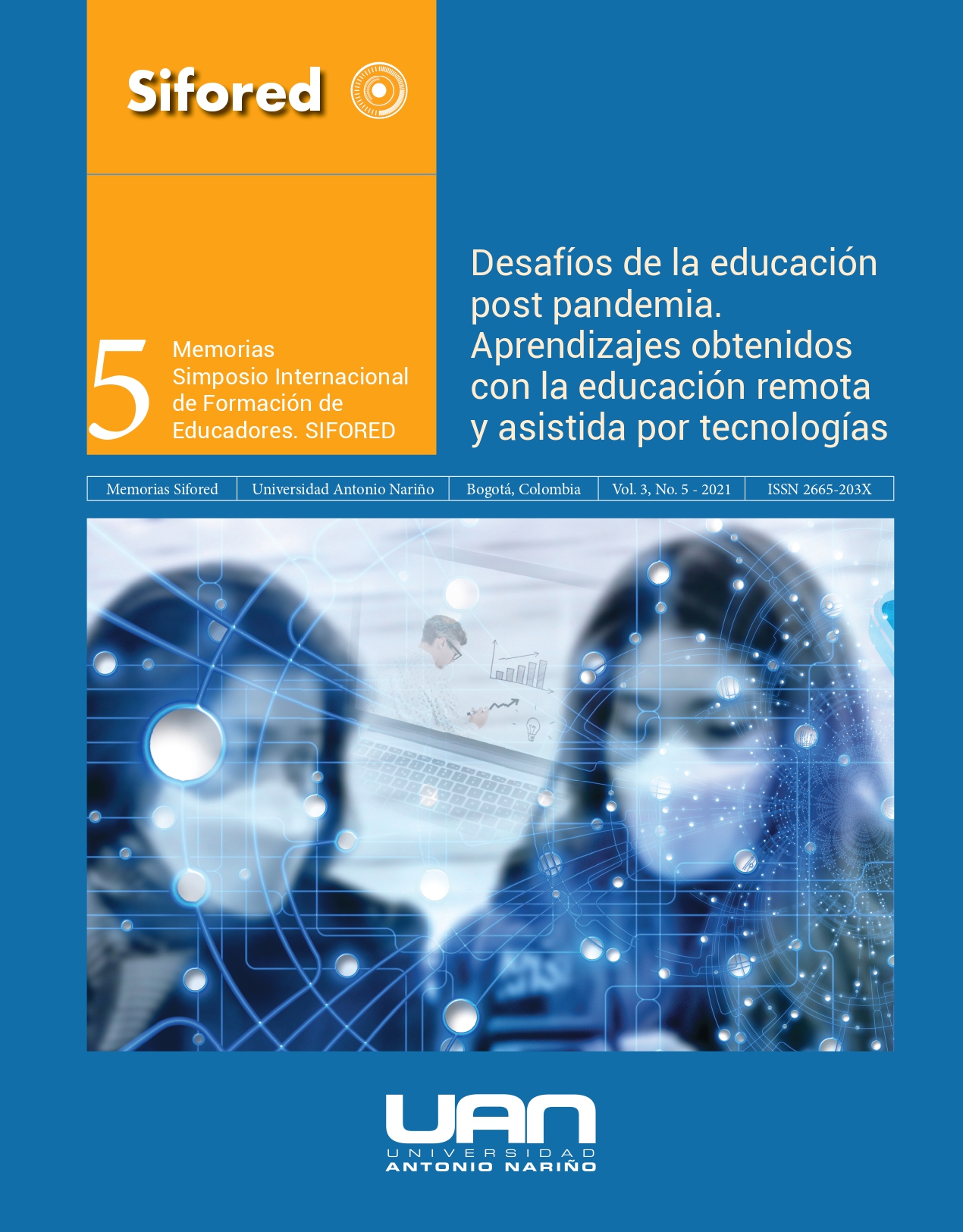Revisión inicial de la literatura sobre la formación de profesores de ciencias naturales desde un enfoque STEAMH en educación secundaria
Palavras-chave:
formación docente, metodología, STEAMH, ciencias naturales, educaciónResumo
La metodología STEAMH ha despertado el interés de la comunidad académica en los últimos años debido al impacto que puede tener en los procesos educativos. No obstante, se ha evidenciado una escasa formación de metodologías con este enfoque, lo que genera una limitada implementación en las prácticas didácticas y metodológicas de los docentes de ciencias. Por lo tanto, el presente trabajo ha hecho una revisión bibliográfica y los resultados evidencian que existe un gran interés por parte de la comunidad investigadora en encontrar relaciones entre la enseñanza de las ciencias, la ingeniería y las artes como una estrategia integradora. La formación docente con un enfoque STEAMH tiene dificultades a la hora de ser implementada debido a la falta de coordinación entre el dominio de conocimiento y la forma de concebir la integralidad. Sin embargo, se considera que es una necesidad permanente y requiere de procesos de innovación constante.
Downloads
Referências
Anisimova, T. I., Sabirova, F. M., & Shatunova, O. V. (2020). Formation of design and research competencies in future teachers in the framework of STEAM education. International Journal of Emerging Technologies in Learning, 15(2), 204–217. https://doi.org/10.3991/ijet.v15i02.11537
Celis Cuervo, D. A., & González Reyes, R. A. (2021). Aporte de la metodología Steam en los procesos curriculares. Revista Boletín Redipe, 10(8). https://doi.org/10.36260/rbr.v10i8.1405
Espinoza Freire, E. E. (2019). LA PLANEACIÓN INTERDISCIPLINAR EN LA FORMACIÓN DEL PROFESIONAL DE LA EDUCACIÓN. Opuntia Brava, 11(2), 280–297. https://doi.org/10.35195/ob.v11i2.762
Kim, D., & Bolger, M. (2017). Analysis of Korean Elementary Pre-Service Teachers’ Changing Attitudes About Integrated STEAM Pedagogy Through Developing Lesson Plans. International Journal of Science and Mathematics Education, 15(4), 587–605. https://doi.org/10.1007/s10763-015-9709-3
Salaza-Gómez, E., & Tobón, S. (2018). Análisis documental del proceso de formación docente acorde con la sociedad del conocimiento. Espacios, 29(53), 17. http://www.revistaespacios.com/cited2017/cited2017-17.pdf
Shukshina, L. V., Gegel, L. A., Erofeeva, M. A., Levina, I. D., Chugaeva, U. Y., & Nikitin, O. D. (2021). STEM and STEAM Education in Russian Education: Conceptual Framework. Eurasia Journal of Mathematics, Science and Technology Education, 17(10), 1–14. https://doi.org/10.29333/ejmste/11184
Solovei, V., Tsvilyk, S., & Shymkova, I. (2020). STEAM EDUCATION AS A BENCHMARK FOR INNOVATIVE TRAINING OF FUTURE TEACHERS OF LABOUR TRAINING AND TECHNOLOGY. https://doi.org/10.17770/sie2020vol1.5000
White, D., & Delaney, S. (2021). Full STEAM ahead, but who has the map for integration? - A PRISMA systematic review on the incorporation of interdisciplinary learning into schools. LUMAT, 9(2). https://doi.org/10.31129/LUMAT.9.2.1387
Zharylgassova, P., Assilbayeva, F., Saidakhmetova, L., & Arenova, A. (2021). Psychological and pedagogical foundations of practice-oriented learning of future STEAM teachers. Thinking Skills and Creativity, 41. https://doi.org/10.1016/j.tsc.2021.100886
Downloads
Publicado
-
Resumo286
-
PDF (Español)153
Como Citar
Edição
Seção
Licença

Este trabalho está licenciado sob uma licença Creative Commons Attribution-NonCommercial-ShareAlike 4.0 International License.


 Portal de Ciencia Abierta
Portal de Ciencia Abierta